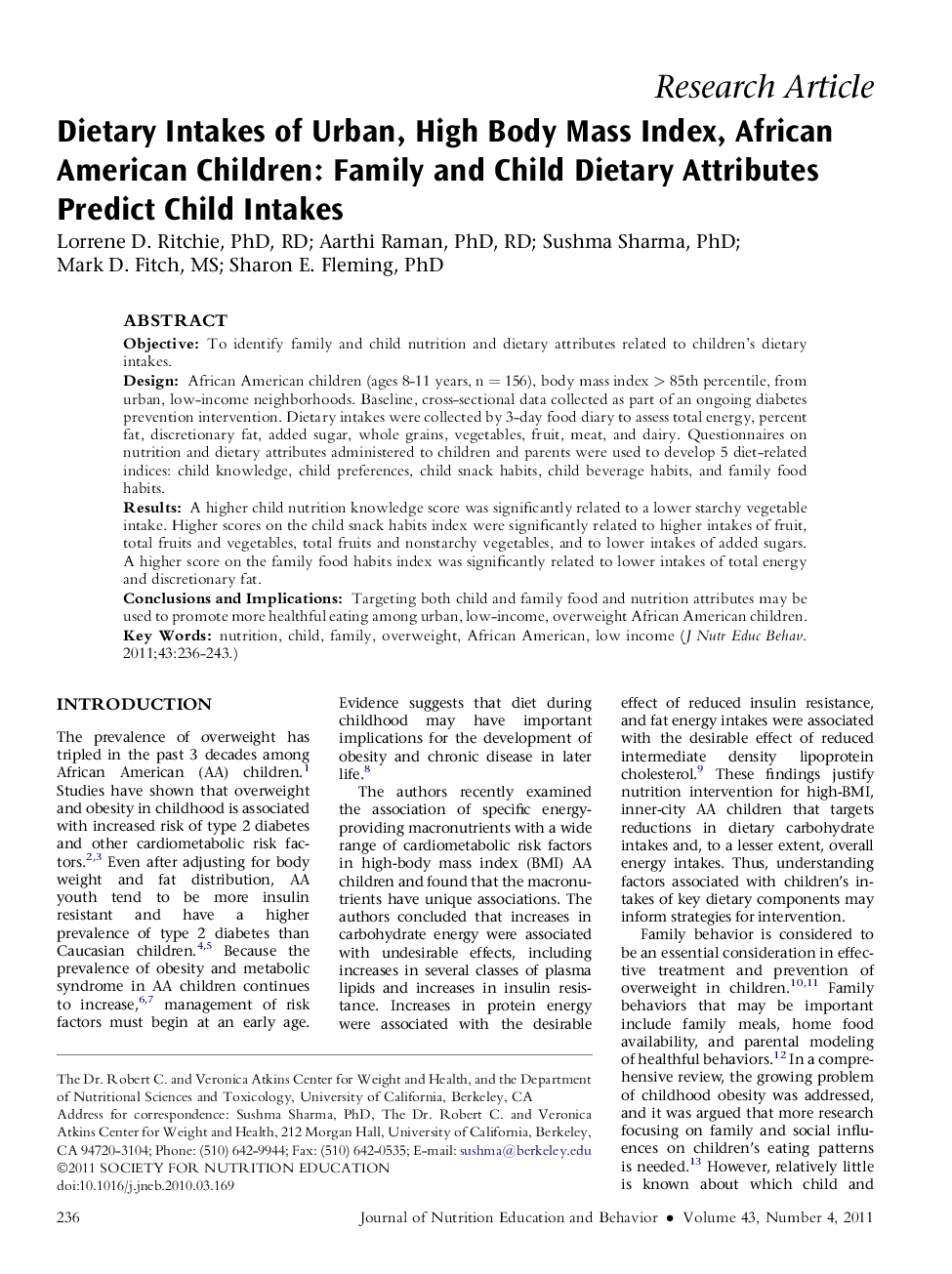| کد مقاله | کد نشریه | سال انتشار | مقاله انگلیسی | نسخه تمام متن |
|---|---|---|---|---|
| 362234 | 620623 | 2011 | 8 صفحه PDF | دانلود رایگان |

ObjectiveTo identify family and child nutrition and dietary attributes related to children's dietary intakes.DesignAfrican American children (ages 8-11 years, n = 156), body mass index > 85th percentile, from urban, low-income neighborhoods. Baseline, cross-sectional data collected as part of an ongoing diabetes prevention intervention. Dietary intakes were collected by 3-day food diary to assess total energy, percent fat, discretionary fat, added sugar, whole grains, vegetables, fruit, meat, and dairy. Questionnaires on nutrition and dietary attributes administered to children and parents were used to develop 5 diet-related indices: child knowledge, child preferences, child snack habits, child beverage habits, and family food habits.ResultsA higher child nutrition knowledge score was significantly related to a lower starchy vegetable intake. Higher scores on the child snack habits index were significantly related to higher intakes of fruit, total fruits and vegetables, total fruits and nonstarchy vegetables, and to lower intakes of added sugars. A higher score on the family food habits index was significantly related to lower intakes of total energy and discretionary fat.Conclusions and ImplicationsTargeting both child and family food and nutrition attributes may be used to promote more healthful eating among urban, low-income, overweight African American children.
Journal: Journal of Nutrition Education and Behavior - Volume 43, Issue 4, July–August 2011, Pages 236–243